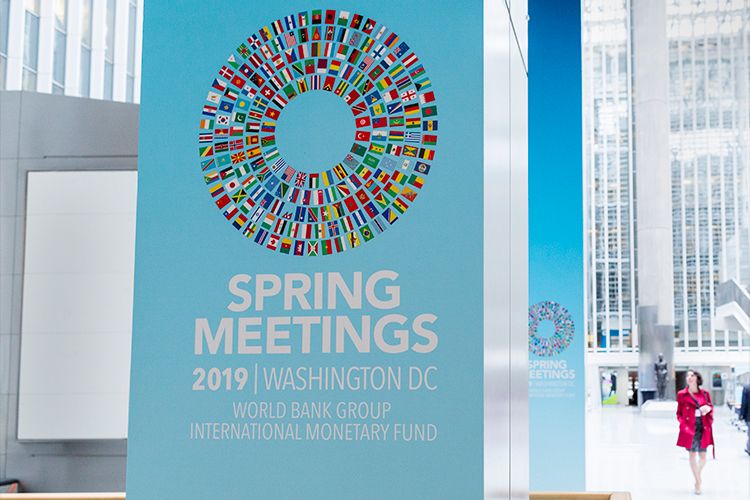The IMF’s World Economic Outlook warns of a slowdown in the upcoming year, with global growth now projected at 3.3 per cent for 2019. Trade tensions, tightening of monetary policy, and political instability are major risks that could further hamper growth. Warning of the possibility of a more severe slowdown, IMF chief economist Gita Gopinath advised governments to be ready to respond with more accommodative macroeconomic policies.
“At this fragile moment for the global economy, the international financial institutions must cease conditionality and policy advice that deepens inequality and economic crises. The world needs a new social contract including a universal labour guarantee for all workers, with a floor of fundamental rights, universal social protection, occupational health and safety, control over working time, and living wages,” said ITUC General Secretary Sharan Burrow.
The ITUC is deeply concerned by the actions of the IMF and World Bank with regards to minimum wage. Last week, the ITUC responded to misguided and destructive attacks by the IMF on minimum wage levels and tripartite fixing mechanisms. Meanwhile in Haiti, a senior manager from the International Finance Corporation, a part of the World Bank Group, inappropriately intervened in the debate on a minimum wage increase by pressuring the Minister of Finance.
The IMF Board of Directors will vote in the coming weeks on a strategic framework for engagement on social spending, including social protection, health and education. Global Unions urged the Board to approve a policy that is aligned with the global policy consensus of universal social protection, and ends ad-hoc interventions by the IMF that result in aggressive cuts and the narrow targeting of social protection programmes.
During the Spring Meetings, government representatives will gather to discuss the 19th replenishment of funding for the International Development Association (IDA-19), the arm of the World Bank that lends to low-income countries. Global Unions urged the adoption of a plan to systematically track the jobs and shared prosperity outcomes of loans under IDA-19, particularly if a programme to channel money directly to the private sector is continued.
Shortly before the Spring Meetings, the World Bank Board of Directors selected David Malpass as the next president of the institution. Previous president Jim Kim resigned in January 2019 to join the private investment firm Global Infrastructure Partners. His full term would have ended in 2022. The selection of Malpass continues the informal agreement among major donor countries that the World Bank president is chosen by the United States. Malpass previously dealt with the IFIs from a position in the United States Department of the Treasury and was chief economist of Bear Stearns prior to the 2008 global financial crisis.
“The IFIs cannot waiver in supporting the achievement of Agenda 2030 and the Paris Accord commitments. It is time to reform the IMF and World Bank to effectively support these goals,” commented Burrow.


